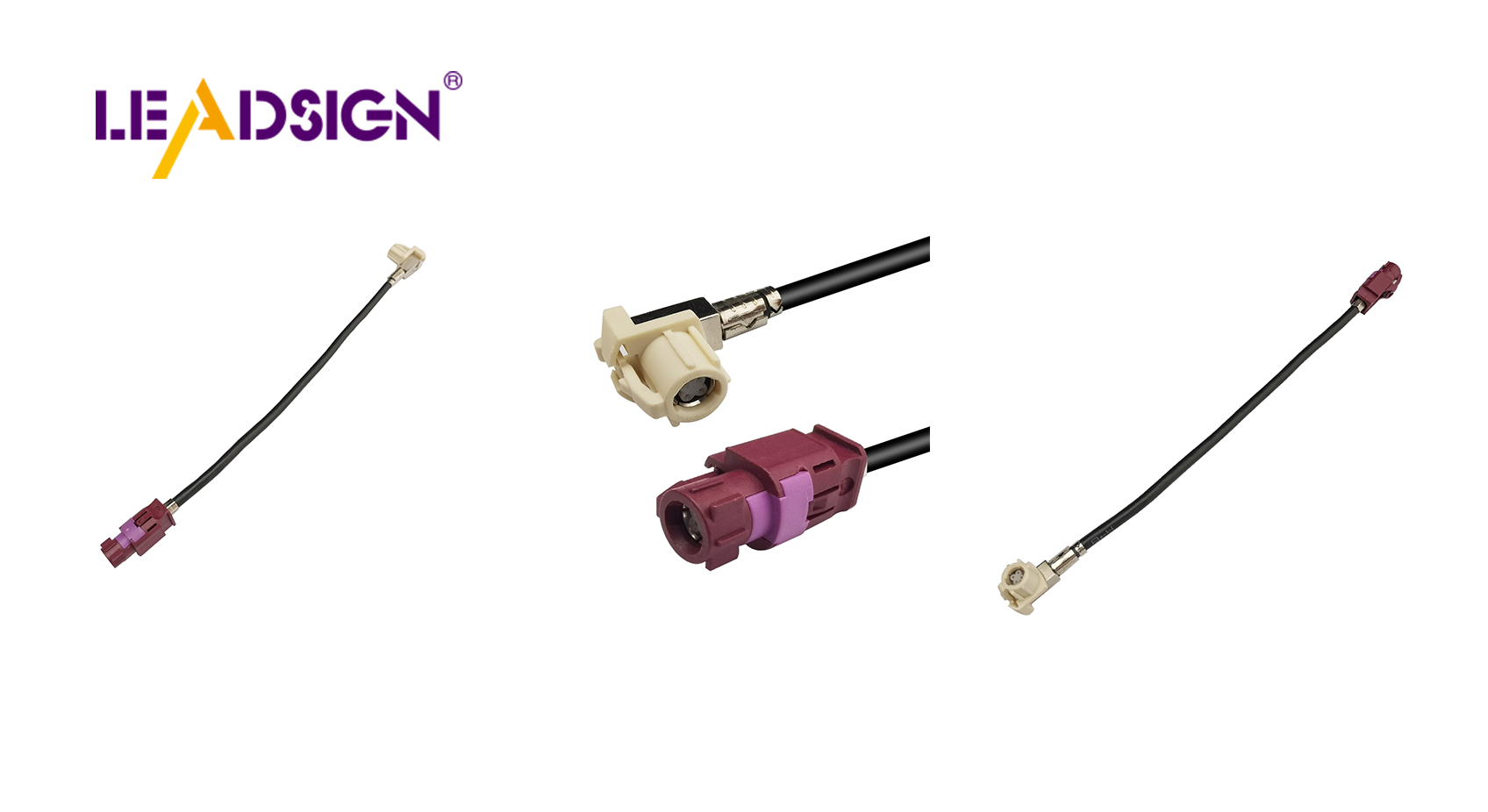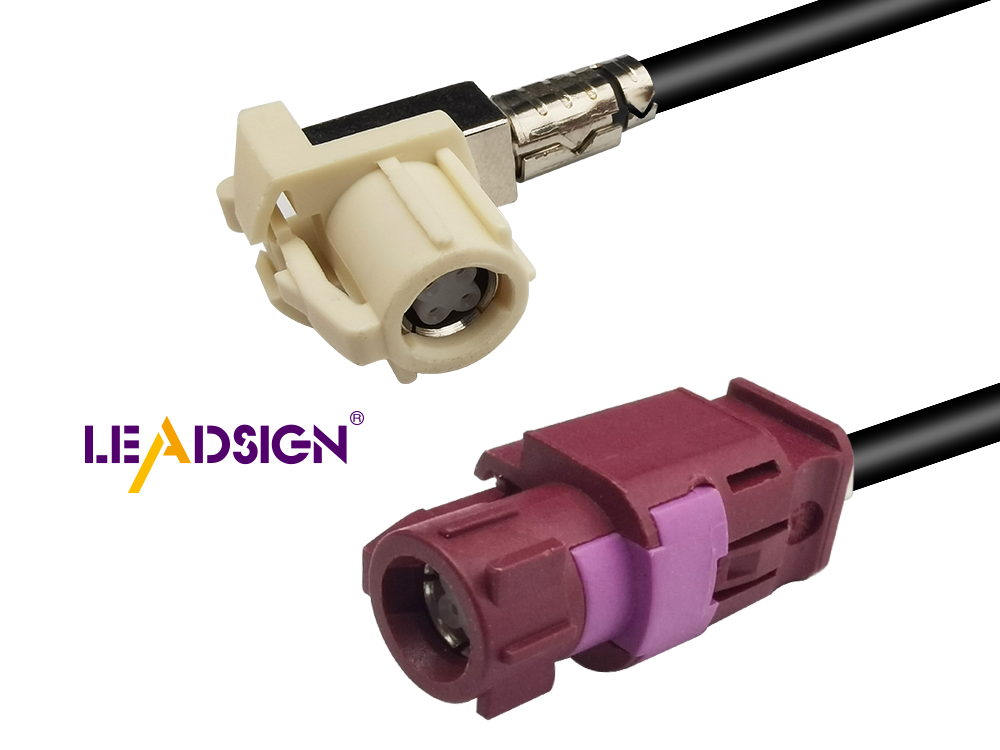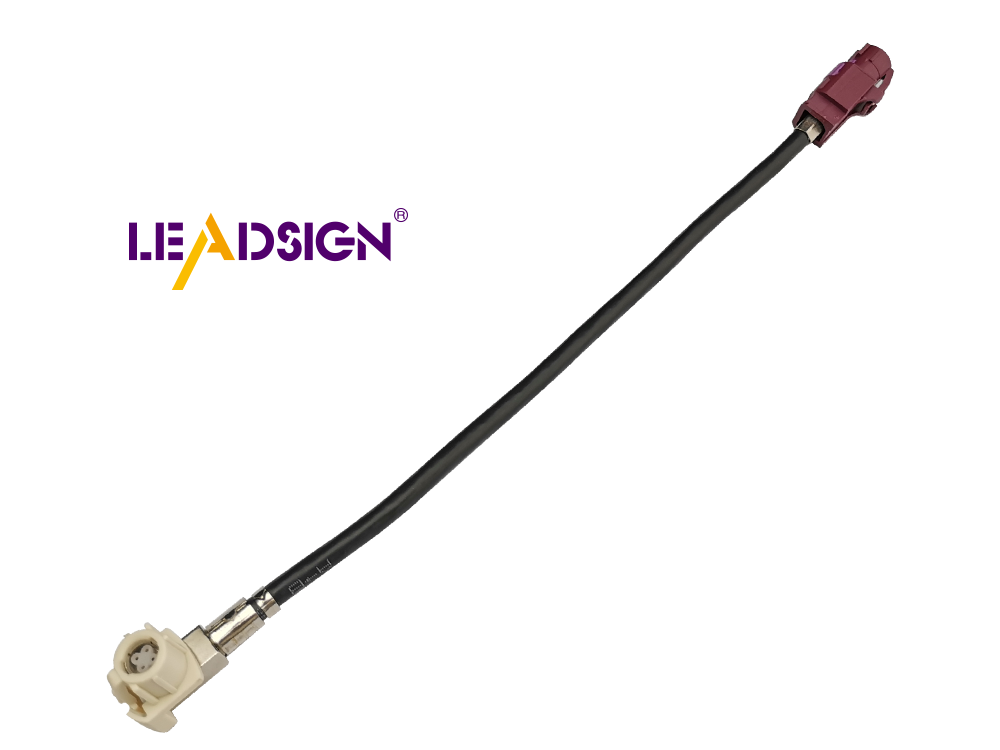A Step-by-Step Guide to Identifying Automotive Wire Connectors

Identifying automotive wire connectors types is crucial for electronics work. You might struggle with similar-looking connectors, and understanding the different types can be challenging. These issues can lead to repair mistakes. Proper identification offers many benefits, such as ensuring safety, enhancing performance, and preventing costly errors. Mastering this skill boosts confidence and efficiency in car electrical systems.
Understanding the Basics of Automotive Wire Connectors

Knowing about car wire connectors is important for fixing electronics. They come in different shapes and uses. Let's look at some types and what they do.
Types of Connectors
Blade Connectors
Blade connectors are very common in cars. They have a flat metal piece that fits into a slot. You see them in fuse boxes and other places. They connect easily, so they're good when you need to unplug often.
Bullet Connectors
Bullet connectors look like tiny bullets. They have two parts that snap together tightly. They're used a lot because they're easy to use and reliable. They're great for tight spaces.
Pin Connectors
Pin connectors are flexible and used in many car systems. They have pins that go into sockets. These are used where many wires connect together. Pin connectors keep connections strong so signals pass well.
Connector Shapes and Colors
Common Shapes
Car wire connectors come in different shapes for different jobs. Rectangular ones are for many pins, circular ones last long, and square ones fit small spaces well.
Color Coding and Its Significance
Colors help identify car wire connectors quickly. Different colors show what the connector does or which wire it connects to. For example, red might mean power, black could mean ground. Knowing these helps avoid mistakes.
Detailed Identification Process

Knowing how to identify automotive wire connectors is key for car electronics. This part shows you how to count pins and spot keyways, two important steps.
Analyzing Pin Count
Why Pin Count Matters
Pin count helps find the right connector type. Each has a set number of pins. This tells you what it does and if it fits. Knowing pin count stops mistakes and electrical problems.
Steps to Count Pins Right
Counting pins right is important. Here’s how:
Look at the Connector: Find the pins by looking closely. They’re in rows or columns.
Count Each Pin: Start at one end, counting each pin carefully. Don’t skip any, even if damaged or missing.
Check Empty Spots: Some spots might be empty but should have pins. Count these too.
Use a Diagram: Check your count with a wiring diagram for accuracy.
Recognizing Keyways
What are Keyways?
Keyways help align and connect wire connectors correctly. They are grooves that guide connections, stopping wrong ones.
How to Spot Keyways
To find keyways in different connectors:
Check the Connector Surface: Look for grooves or notches on it.
Align with Slots: Match keyways with slots in the receptacle for a secure fit.
Read Manufacturer Info: Look at specs for details about keyway design.
Practice with Connectors: Try identifying different types to get better at spotting keyways fast.
By learning pin counts and keyways, you can easily identify automotive wire connectors types, boosting safety and skill in car systems.
Using Outside Help
Wiring Diagrams
Wiring diagrams help you find automotive wire connectors. They show the electrical system, making it easier to follow wires.
How to Read and Understand Wiring Diagrams
Know Symbols: Learn common symbols in wiring diagrams. These stand for parts like connectors and wires.
Trace the Lines: Lines are wires. Follow them to see how parts connect.
Look for Labels: Find labels showing wire colors, pin numbers, and connector types. These match the diagram to real parts.
Practice Often: Regular practice with diagrams helps you read them fast.
Where to Get Good Wiring Diagrams
Getting good wiring diagrams gives correct info. Try these places:
Car Maker Websites: Many car makers have wiring diagrams online.
Repair Manuals: Books from Haynes or Chilton have detailed diagrams.
Online Groups: Car forums can be helpful. People share diagrams and tips there.
Getting Expert Help
Sometimes, finding wire connectors needs expert help. Knowing when to ask saves time and stops mistakes.
When to Ask an Expert
Hard Systems: If the system is hard or new, an expert can help identify correctly.
Ongoing Problems: If problems don't go away, an expert offers new ideas and skills. ongoing problems
Safety Worries: If safety is a worry, ask an expert to avoid dangers.
Finding Good Car Electricians
Finding the right expert is key for good help. Here’s how:
Check Skills: Make sure they have certifications in car electronics.
Get Suggestions: Ask friends or read reviews for trusted experts.
Go to Known Shops: Pick well-known repair shops with good service records.
Using outside resources like wiring diagrams and experts helps you find automotive wire connectors better. This way improves your skills and keeps your car's electrical systems safe and working well.
Helpful Tips and Resources
Understanding car wire connectors can be tough. But with good tips and tools, you can make smart choices for your car's wires.
Buying Connectors
Picking the right place to buy connectors is important. Here are some ideas:
Where to Buy Connectors
Local Auto Parts Stores: Go to places like AutoZone or O'Reilly Auto Parts. They have staff who know about connectors and can help you find the right ones.
Online Marketplaces: Websites like Amazon and eBay sell many types of wire connectors. You can read reviews and check prices easily.
Specialized Websites: Sites like FindPigtails.com focus on car connectors. As Eric Palazzolo, the boss of FindPigtails.com, says, "Finding your car's electrical connectors isn’t always easy, but our customers find it very easy."
Tips for Matching Connectors
Making sure connectors fit is key. Follow these tips:
Check Details: Always look at connector details like pin count and size to match your car's needs.
Look at Manuals: Check your car's manual for specific connector types and numbers.
Use Online Tools: Some sites have tools where you enter your car’s make and model to find matching connectors.
Taking Care of Connectors
Keeping wire connectors in good shape helps them last longer.
How to Keep Connectors Good
Regular Checks: Look at connectors often for wear or damage signs. Finding problems early stops bigger issues.
Clean Contacts: Use cleaner spray to remove dirt from contacts for a strong connection.
Tighten Connections: Make sure all connections are tight so they don’t come loose when driving.
Steps for Safe Connector Change
Changing wire connectors needs care. Follow these steps:
Turn Off Power: Always disconnect the battery before working on wires to avoid shocks.
Find the Connector: Use diagrams or ask an expert to find the right connector type.
Take Out Old Connector: Carefully remove the old one without harming wires.
Put in New Connector: Line up the new one correctly and secure it well, ensuring all pins fit right.
Check Connection: Reconnect power and test if everything works fine with the new connector.
By using these tips and resources, you can handle wire connectors confidently, keeping your car’s systems safe and working well.
Knowing different car wire connectors is important. It helps signals move well and cars work better. Follow the steps to find and keep these connectors in good shape. Pick the right ones for strong connections. Knowing connector types helps you fix cars better. This skill makes driving safe and smooth.
See Also
Navigating Ford Fakra Connectors: A Comprehensive Overview
Mastering HSD Connectors: An Extensive Overview
Essential HSD Connectors in Automotive: A Fundamental Look

